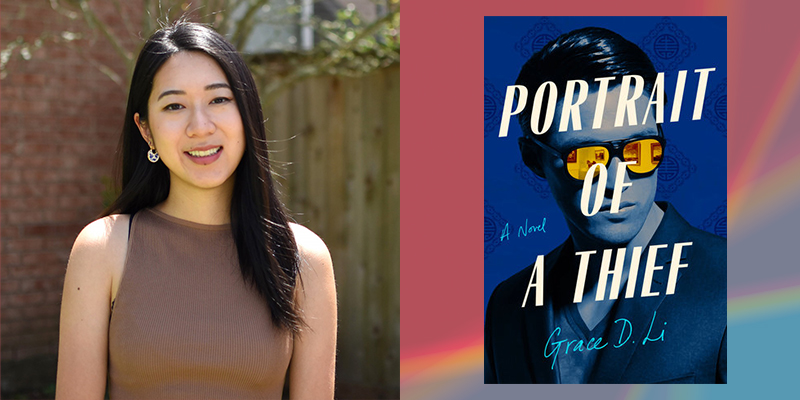When Grace D. Li’s absurdly entertaining Portrait of a Thief came across my (now virtual) desk, I inhaled it faster than a toddler can fail the marshmallow test, and for the same reason—why ever post-pone consuming something so utterly delicious? In Portrait of a Thief, a group of Chinese-American college students are given an epic task by a mysterious Chinese government official—steal back the art once looted by colonizers and return it to its country of origin. In order to steal the art, they must come up with an elaborate heist plan, and also get into not a small number of scrapes and shenanigans. Grace D. Li was kind enough to answer a few questions ahead of her new book’s publication.
Molly Odintz: How did your love for The Fast and the Furious make it into your book?
Grace D. Li: The only interview question that matters! The Fast & Furious movies are such uninhibited fun, especially in the moments surrounding a race, and I wanted to capture some of that in my book. We have street races in different cities, rival racers, all the recklessness that comes with being young. But this book is also a meditation on identity and belonging, and to quote Dominic Toretto, “Everyone’s looking for the thrill, but what’s real is family.” Even though this is a heist book, it’s really a book about relationships—to yourself, your friends, your family.
MO: Your book is partially inspired by stories of Chinese art vanishing from Western museums—art that was looted in the first place by colonizers and that museums have refused to return. What did you want your book to say about art and the history of colonization? What does justice in the art world look like?
GL: It can be all too easy to view art as a neutral act, or museums as institutions that solely preserve history instead of shape it. In Portrait of a Thief, I wanted to challenge the presence of looted art in museums. Why is it acceptable to keep stolen art, especially when its country of origin has already asked for it back? Why do Western institutions assume they can better preserve, display, or educate about pieces that doesn’t belong to them? The art world is awaiting long overdue change, and I hope my book can help push that forward.
MO: Your characters capture the disparate experiences of diasporic living. What did you want to explore about diaspora and identity?
GL: As a Chinese American, I often felt pulled between two cultures: never Chinese enough for China, never American enough for here. I wanted to explore that tension, especially among college students who are still growing into their identities, while also giving my characters the chance to inhabit their worlds without apology or question. Here, there are characters from different parts of the country, with differing ideas of what it means to be Chinese American, but there are also some of the idiosyncratic joys I’ve found in being part of the Chinese diaspora, from cut fruit as a love language to singing karaoke to Tong Hua: all the details I’ve always wanted to see reflected in books.
MO: Your writing is so cinematic. When do we get to watch the movie and/or TV show? And who’s on your casting wishlist?
GL: Portrait of a Thief is currently in development with Netflix for TV, and though we’re still in the early stages, this entire process has been such a dream come true! I don’t have a specific vision in terms of cast, but I will say that there’s an FBI agent / complicated father figure in the book that I think Tony Leung could play to devastating effect. Otherwise, I’m hopeful that my book and other forthcoming Asian American stories will offer opportunities for more young Asian American actors, as that kind of representation was something I craved but seldom had growing up!
MO: What are you reading right now?
GL: I recently inhaled The Violence by Delilah S. Dawson, a smart, thought-provoking, absolutely unputdownable pandemic thriller (but not the pandemic you’re thinking of!), and I just started Chloe Gong’s forthcoming spy noir Foul Lady Fortune, set in 1930s Shanghai. Other books I’m eyeing include Katie Zhao’s The Lies We Tell, Like a Sister by Kellye Garrett, and Tripping Arcadia by Kit Mayquist.
***

















